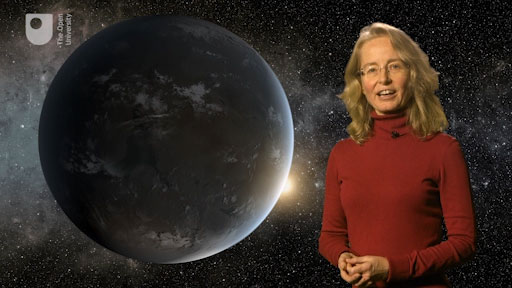Week 1: Planets and the Solar System
Introduction
What is an exoplanet? Put simply, an exoplanet is a planet that orbits a star other than our own Sun. Until the final years of the twentieth century the only planets we knew of in the entire Universe were the eight planets orbiting our Sun. We could only speculate as to what might lie ‘out there’ among the other stars. Could our own Solar System be unique? The historic discovery of the first exoplanet completely changed our perspective – we are at the dawn of an entirely new branch of astronomy.
During this course you will learn about this fascinating subject. First, in Week 1, you’ll start by looking at the ‘building blocks’ of the Universe: stars, planets, planetary systems and galaxies, and how they relate to each other. You will understand the location within the Universe of our own planet Earth and our Solar System, along with the thousands of planets orbiting other stars that have been discovered since 1995.
Watch the following video in which Carole Haswell talks more about this.

Transcript
By the end of this week, you will be able to:
- recognise the International Astronomical Union (IAU) definition of a planet
- understand the difference between planets and dwarf planets
- describe the other objects in our Solar System
- define the term ‘exoplanet’
- describe each of the following building blocks of the Universe: stars, planets, planetary systems and galaxies
- identify objects and constellations in the night sky.
The Open University would really appreciate a few minutes of your time to tell us about yourself and your expectations for the course before you begin, in our optional start-of-course survey [Tip: hold Ctrl and click a link to open it in a new tab. (Hide tip)] . Participation will be completely confidential and we will not pass on your details to others.
